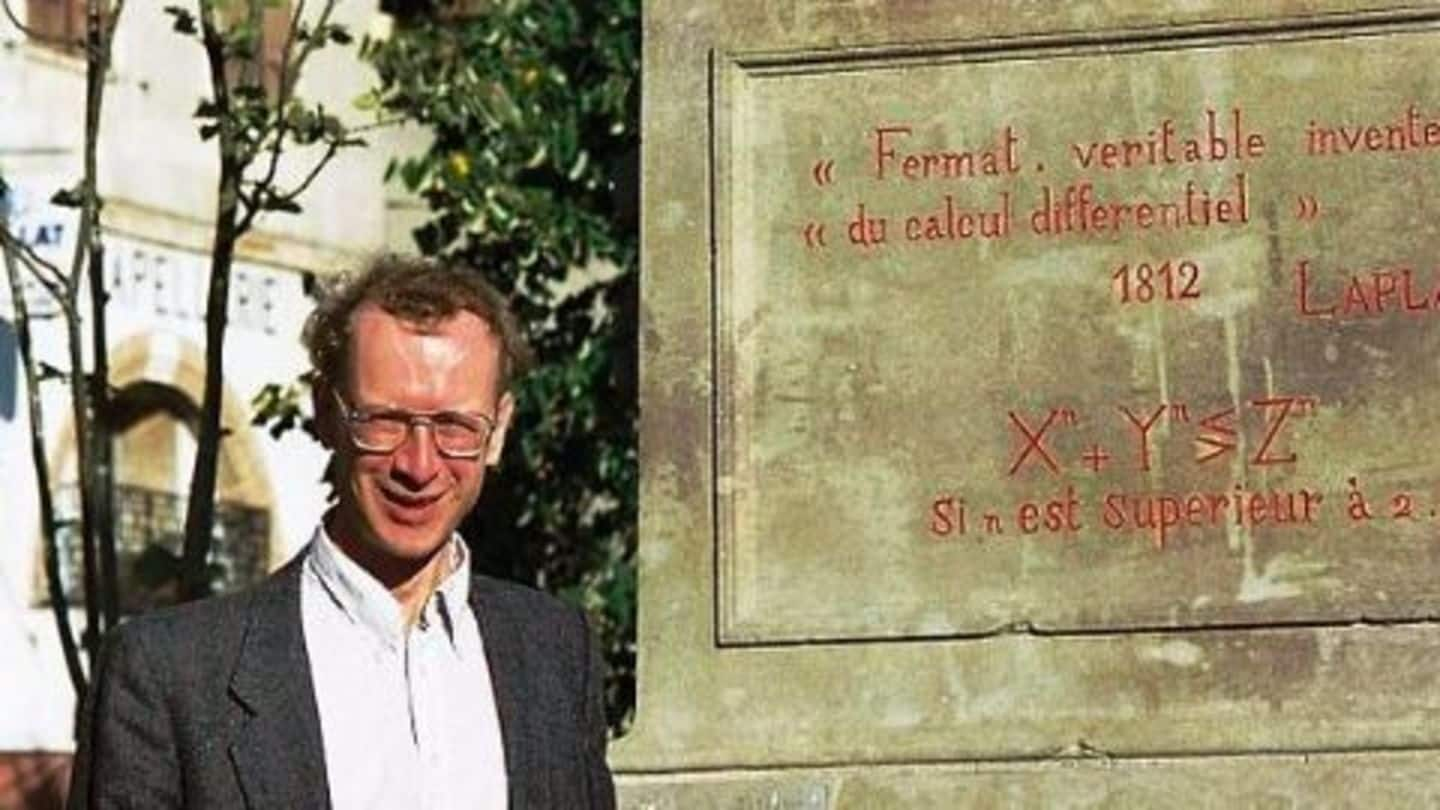
British mathematician wins Abel Prize 2016
What's the story
British mathematician, Sir Andrew J. Wiles, was named the winner of the Abel Prize 2016 by the Norwegian Academy of Science and Letters "for his stunning proof of Fermat's Last Theorem" which opened "a new era in number theory". Wiles cracked Fermat's Last Theorem, the longest-running and most famous problem in the history of Mathematics, in 1994, after 358 years of efforts by mathematicians.
Abel
What is the Abel Prize?
Named after Norwegian mathematician Niels Henrik Abel (1802-1829) and often called the mathematician's Nobel Prize, the Abel Prize was established in 2001 by the Government of Norway. The Abel Prize is awarded annually by the Norwegian Academy of Science and Letters to one or more outstanding mathematician. The winner(s) of the Abel Prize receives a cash prize of 6 million Norwegian Kronor or $700,000.
Do you know?
The mathematician's Nobel Prize
The establishment of the Abel Prize was first proposed by Sophus Lie (1842-1899) in 1899, when he learned that Alfred Nobel's annual prizes would not include a prize in the category of Mathematics.
Fermat's
What is Fermat's Last Theorem?
First conjectured by Pierre de Fermat in 1637, Fermat's Last Theorem states that no three positive intergers a, b, and c satisfy the equation a^n + b^n = c^n for any integer value of n greater than 2. Prior to its proof by Wiles in 1994, Fermats Last Theorem featured in the Guiness Book of World Records as the "most difficult mathematical problem".
Wiles
Who is Andrew J. Wiles?
Born on April 11, 1953 in Cambridge, Andrew J. Wiles earned his bachelor's degree in Mathematics in 1974 from Merton College, Oxford, and went on to complete his Ph.D. in 1980 from Clare College, Cambridge. Wiles served as a professor in Princeton University, and as a Royal Society Research Professor at the University of Oxford, among other accomplishments. He has won several awards.
Do you know?
Wiles' journey started when he was 10
As a 10 year-old boy in Cambridge, Andrew Wiles came upon a copy of a book on Fermat's Last Theorem in 1963. Intrigued by the 300 year-old simple, yet unsolved problem, Wiles later said that he "had to solve it".